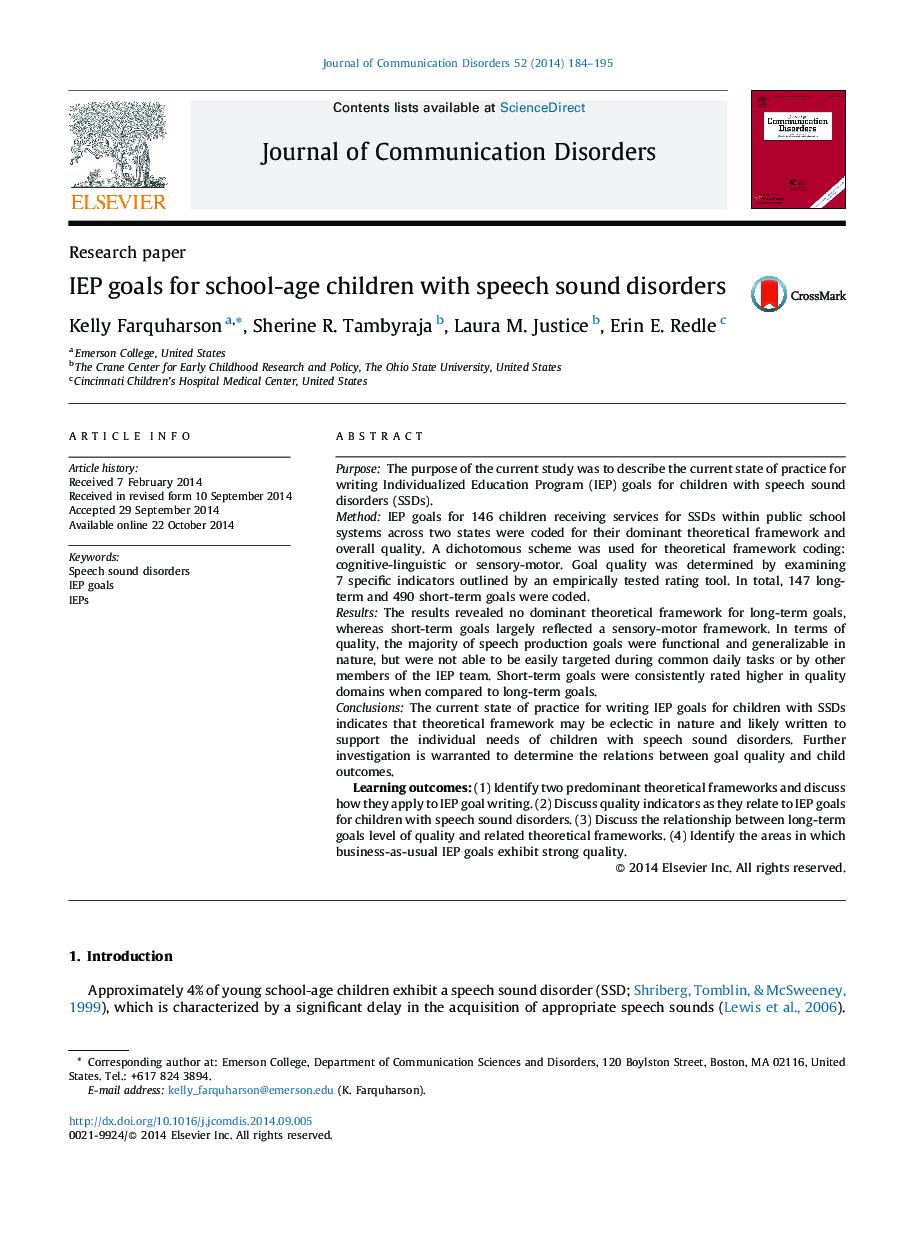| کد مقاله | کد نشریه | سال انتشار | مقاله انگلیسی | نسخه تمام متن |
|---|---|---|---|---|
| 910806 | 1473104 | 2014 | 12 صفحه PDF | دانلود رایگان |

• No dominant theoretical framework for long-term goals.
• Short-term goals were sensory-motor in nature.
• Long-term goals were observable and measurable when sensory motor in nature.
• IEP goals were consistently rated high in functionality and generalizability.
• IEP goals were consistently rated low in daily tasks and clarity of goals.
PurposeThe purpose of the current study was to describe the current state of practice for writing Individualized Education Program (IEP) goals for children with speech sound disorders (SSDs).MethodIEP goals for 146 children receiving services for SSDs within public school systems across two states were coded for their dominant theoretical framework and overall quality. A dichotomous scheme was used for theoretical framework coding: cognitive-linguistic or sensory-motor. Goal quality was determined by examining 7 specific indicators outlined by an empirically tested rating tool. In total, 147 long-term and 490 short-term goals were coded.ResultsThe results revealed no dominant theoretical framework for long-term goals, whereas short-term goals largely reflected a sensory-motor framework. In terms of quality, the majority of speech production goals were functional and generalizable in nature, but were not able to be easily targeted during common daily tasks or by other members of the IEP team. Short-term goals were consistently rated higher in quality domains when compared to long-term goals.ConclusionsThe current state of practice for writing IEP goals for children with SSDs indicates that theoretical framework may be eclectic in nature and likely written to support the individual needs of children with speech sound disorders. Further investigation is warranted to determine the relations between goal quality and child outcomes.Learning outcomes: (1) Identify two predominant theoretical frameworks and discuss how they apply to IEP goal writing. (2) Discuss quality indicators as they relate to IEP goals for children with speech sound disorders. (3) Discuss the relationship between long-term goals level of quality and related theoretical frameworks. (4) Identify the areas in which business-as-usual IEP goals exhibit strong quality.
Journal: Journal of Communication Disorders - Volume 52, November–December 2014, Pages 184–195